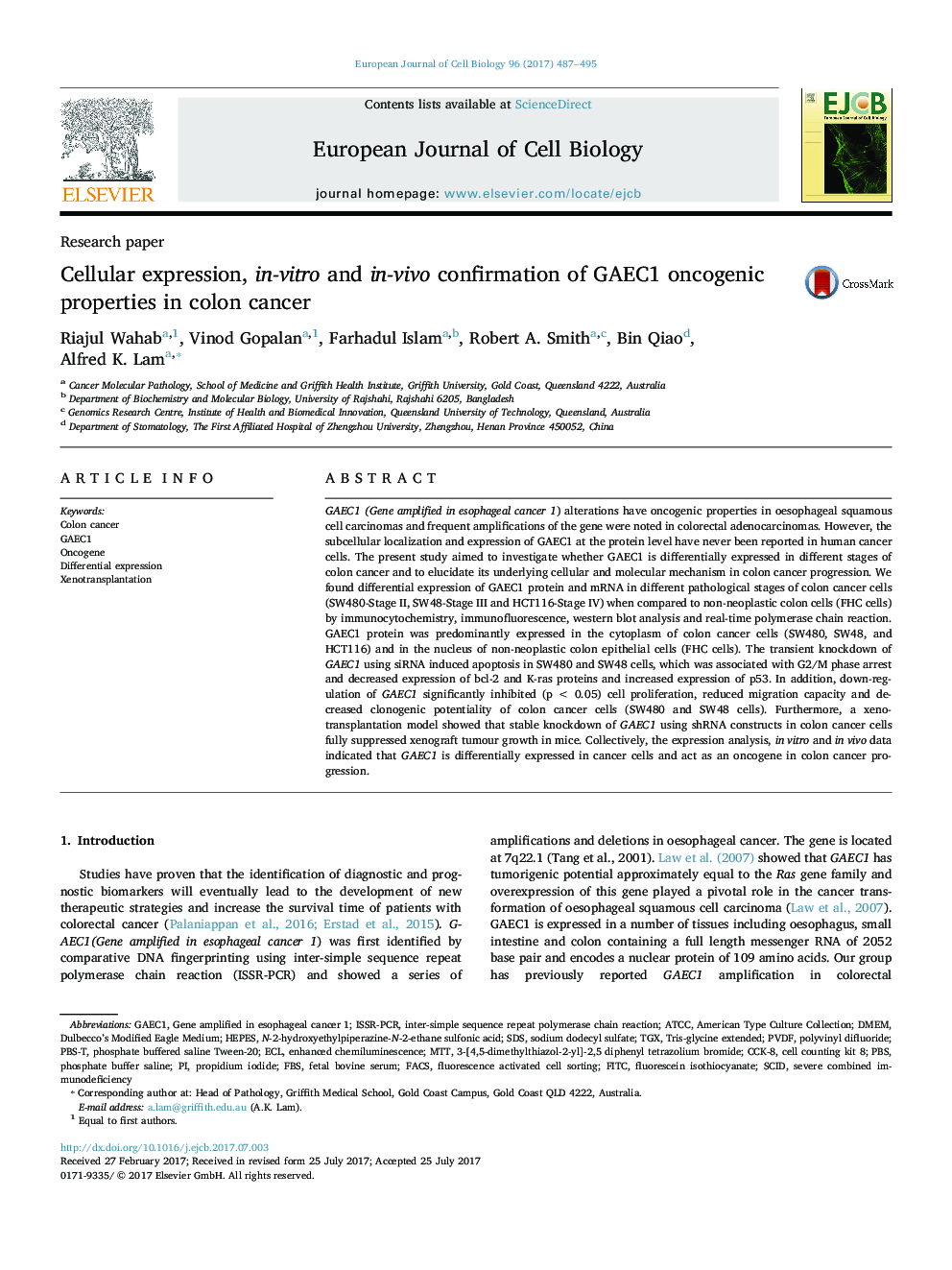| Article ID | Journal | Published Year | Pages | File Type |
|---|---|---|---|---|
| 5532158 | European Journal of Cell Biology | 2017 | 9 Pages |
â¢We confirmed the cytoplasmic and nuclear localization of GAEC1 in colon cancer.â¢GAEC1 expression changed significantly in different stages of colon cancer.â¢Functional studies confirmed the oncogenic role of GAEC1 in colon cancer.â¢In-vivo data showed that permanent suppression of GAEC1 inhibits tumour growth in xenograft model.
GAEC1 (Gene amplified in esophageal cancer 1) alterations have oncogenic properties in oesophageal squamous cell carcinomas and frequent amplifications of the gene were noted in colorectal adenocarcinomas. However, the subcellular localization and expression of GAEC1 at the protein level have never been reported in human cancer cells. The present study aimed to investigate whether GAEC1 is differentially expressed in different stages of colon cancer and to elucidate its underlying cellular and molecular mechanism in colon cancer progression. We found differential expression of GAEC1 protein and mRNA in different pathological stages of colon cancer cells (SW480-Stage II, SW48-Stage III and HCT116-Stage IV) when compared to non-neoplastic colon cells (FHC cells) by immunocytochemistry, immunofluorescence, western blot analysis and real-time polymerase chain reaction. GAEC1 protein was predominantly expressed in the cytoplasm of colon cancer cells (SW480, SW48, and HCT116) and in the nucleus of non-neoplastic colon epithelial cells (FHC cells). The transient knockdown of GAEC1 using siRNA induced apoptosis in SW480 and SW48 cells, which was associated with G2/M phase arrest and decreased expression of bcl-2 and K-ras proteins and increased expression of p53. In addition, down-regulation of GAEC1 significantly inhibited (p < 0.05) cell proliferation, reduced migration capacity and decreased clonogenic potentiality of colon cancer cells (SW480 and SW48 cells). Furthermore, a xenotransplantation model showed that stable knockdown of GAEC1 using shRNA constructs in colon cancer cells fully suppressed xenograft tumour growth in mice. Collectively, the expression analysis, in vitro and in vivo data indicated that GAEC1 is differentially expressed in cancer cells and act as an oncogene in colon cancer progression.
